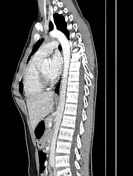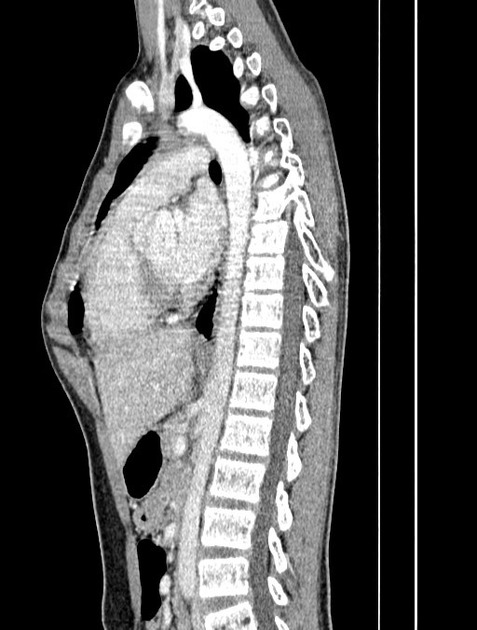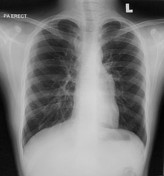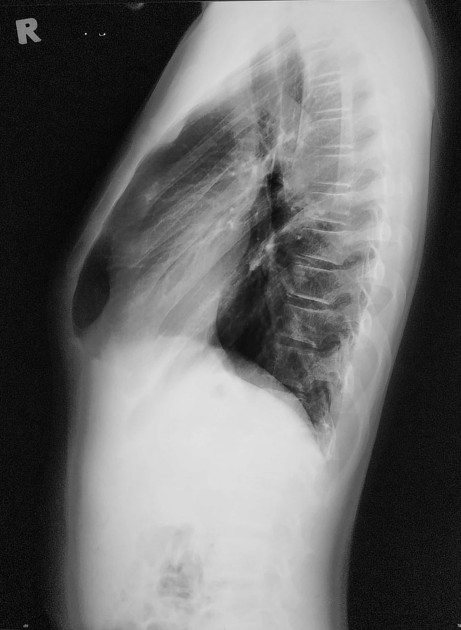Presentation
Presented with painless anterior chest swelling for 1 year. Previously obese but had been intentionally losing weight.
Patient Data





Protrusion of the sternal body and xiphisternum. No suspicious osseous or retrosternal lesion. Features are consistent with pectus carinatum.
Case Discussion
Pectus carinatum or “pigeon chest” is characterized by an abnormal prominence of the sternum. This condition commonly affects males around puberty when their growth spurt occur. In our case, the chest protrusion became more apparent as the patient underwent some weight loss.
Severe cases of pectus carinatum may result in restricted lung volume and inefficient respiration, necessitating treatment eg. orthotic bracing and minimally invasive surgery.







 Unable to process the form. Check for errors and try again.
Unable to process the form. Check for errors and try again.